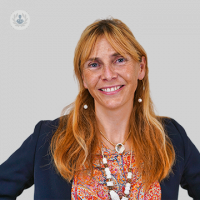Looking after your mental health
Autore:Dr Morwenna Opie has worked with patients with a variety of mental health conditions for many years, including anxiety, trauma, OCD and those with mental health issues that arise from physical health challenges. Here she explains the link between physical and mental wellbeing, as well as providing professional advice that you can try when caring for your mental health.

Can physical health conditions affect mental health?
Yes, physical health conditions can absolutely have an impact on mental health. Going through daily life can be hard work at times. This happens particularly for those who have physical or mental health conditions, which applies to 30% of people in the UK. The extra hurdles these conditions entail can make sufferers feel like their lives have become disrupted and not what they had hoped for.
Despite us realising that emotional hurdles often come with physical ones, we often forget this during our personal times of illness. When we’re unwell or very limited in how much we can achieve our usual daily activities, we can overlook that it’s ok to feel emotions such as frustration, stress and anxiety.
What is your key advice?
Everyone can benefit from the following:
- Mindfulness: This means being aware of what’s happening in the present and focusing less on worries and criticism about past, present and future events. This can be practised through mediation and yoga, for example.
- Exercise: Exercise releases endorphins and these chemicals relieve feelings of pain and stress. You may have heard of endorphins being referred to as “happy hormones” before. Exercise gets you out in the fresh air and interacting with people: it’s beneficial in several ways.
- Authenticity: It’s important to feel like you know your true self. By taking a look at core values that matter to us as opposed to what we think should matter, we can live a lifestyle that matches our true values.
Does mindfulness work?
Everyone can benefit from mindfulness. I highly recommend trying it, even if you doubt its ability to help you. Everyone has moments of self-judgment and criticism and what mindfulness does is that it allows a person to control and combat those negative thoughts.
There are several techniques, so don’t be disheartened if mindfulness initially doesn’t work for you. Mindfulness is like exercise for the mind: you become more flexible mentally and more resilient against negative emotions.
What is a therapy session with you like?
First and foremost, I get to know the person I’m helping. If you visit me for a therapy session, together you and I will evaluate what goals you want to achieve and determine the best therapeutic methods that will lead to you accomplishing these goals. I’m passionate about patients feeling understood in their sessions and I’m committed to making sure each and every patient feels heard, hopeful and able to care for their mental health.
I’ve had patients from London and overseas visit the clinic (at the Duchy Hospital in Cornwall) and stay on wellness retreats. These retreats offer transformational intensive therapy in the beautiful environment of Cornwall. Locals can also experience this transformation with 6-8 weekly sessions at the hospital clinic.
Above all, patients are helped to make adjustments that promote lasting changes to their mental wellbeing.
Don’t delay in caring for your mental health. Learn more and get in touch with Dr Opie by clicking here.



